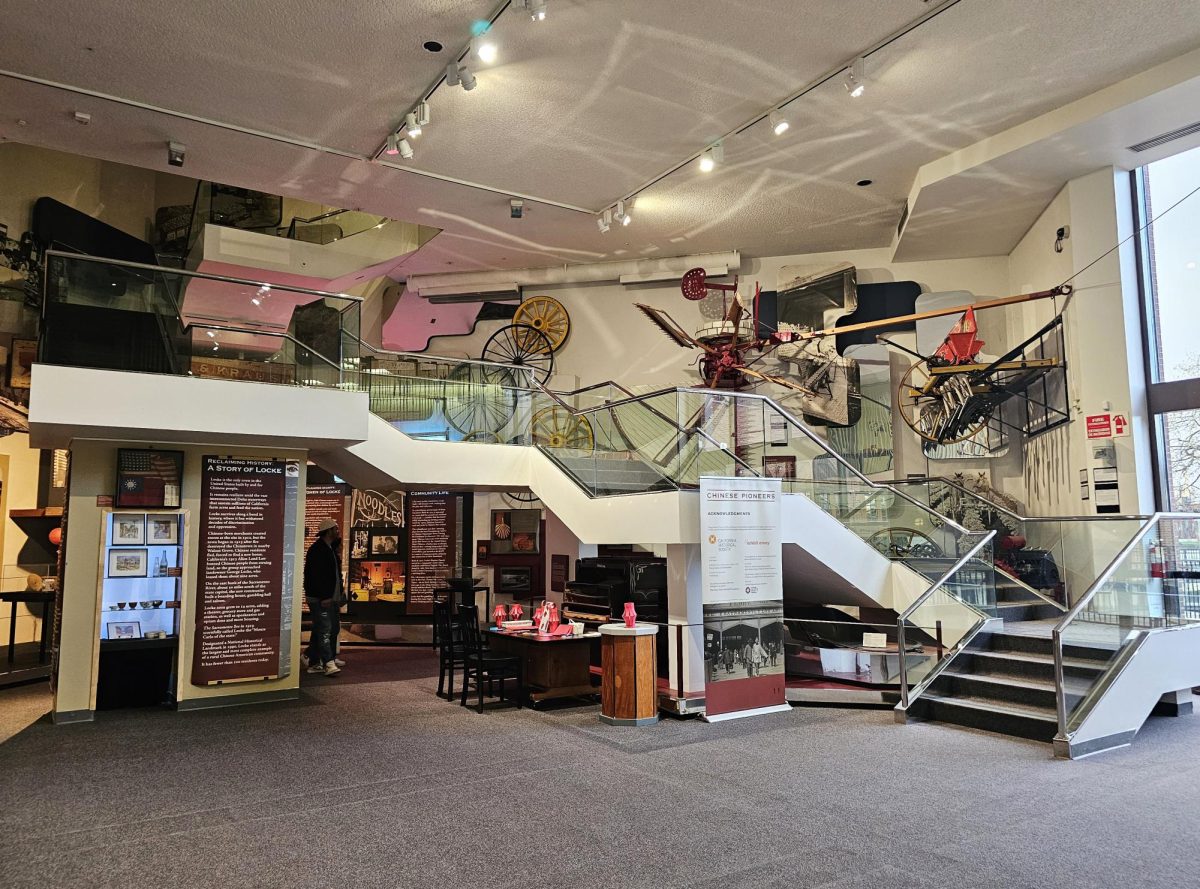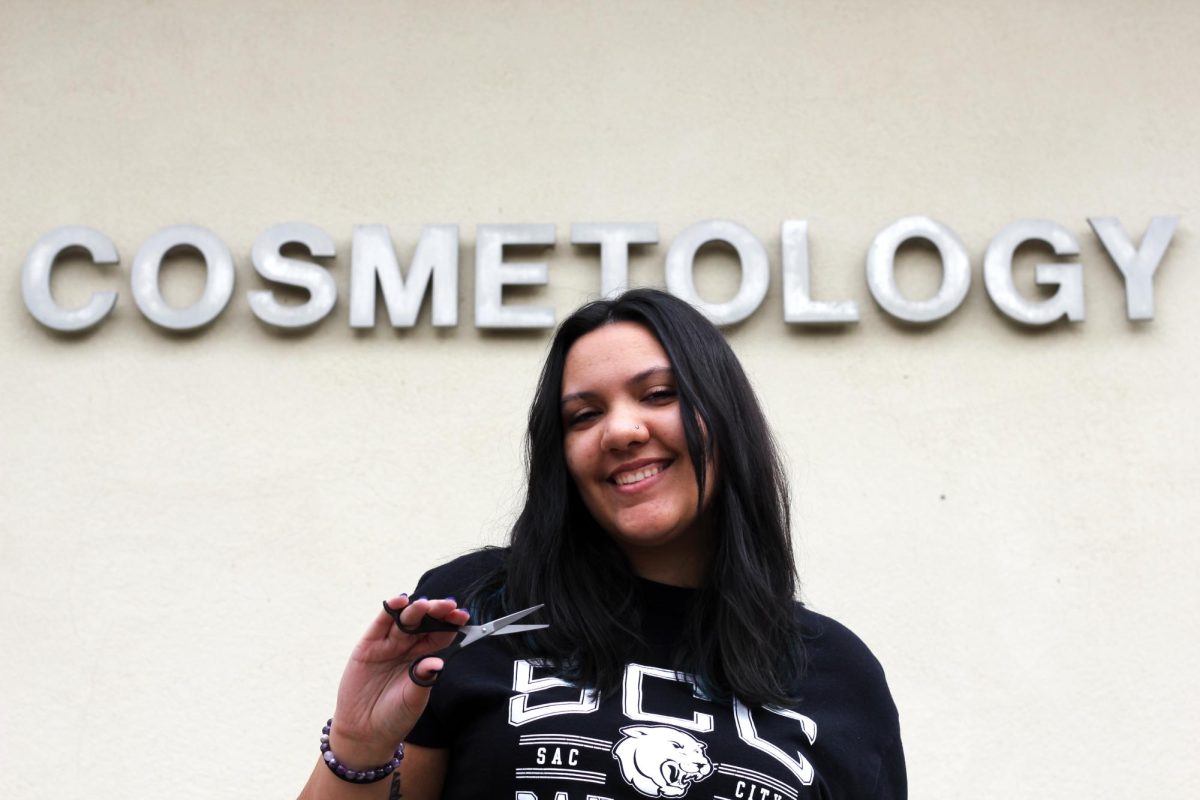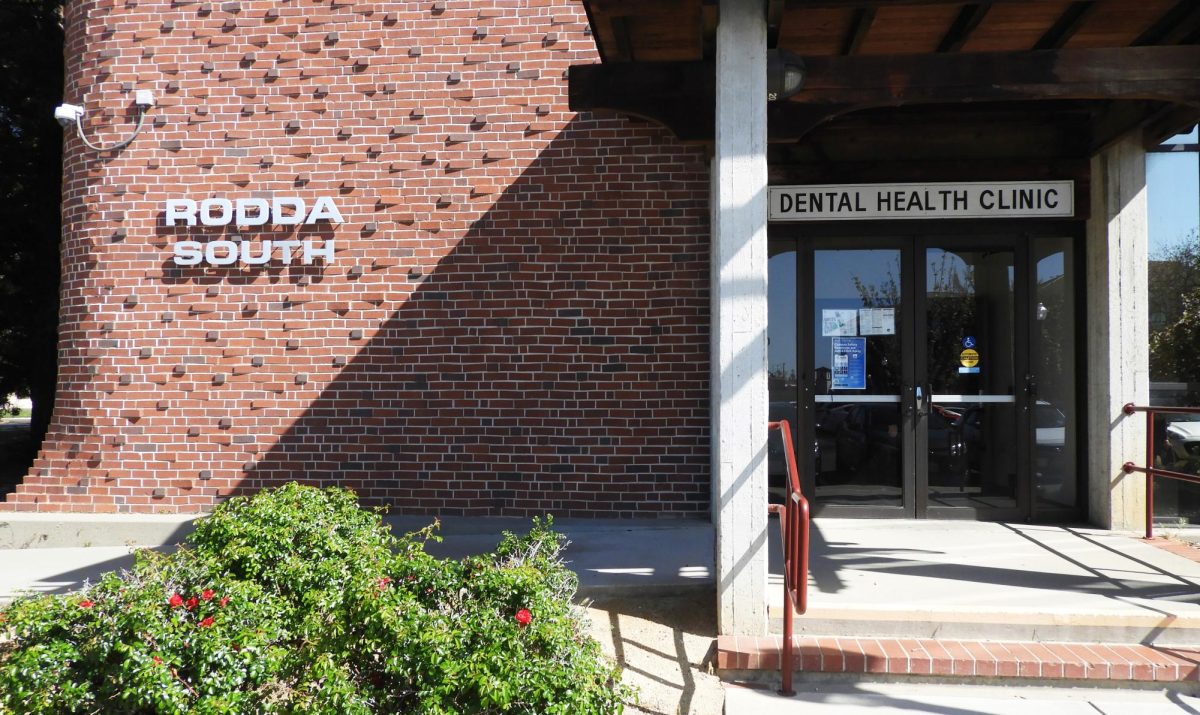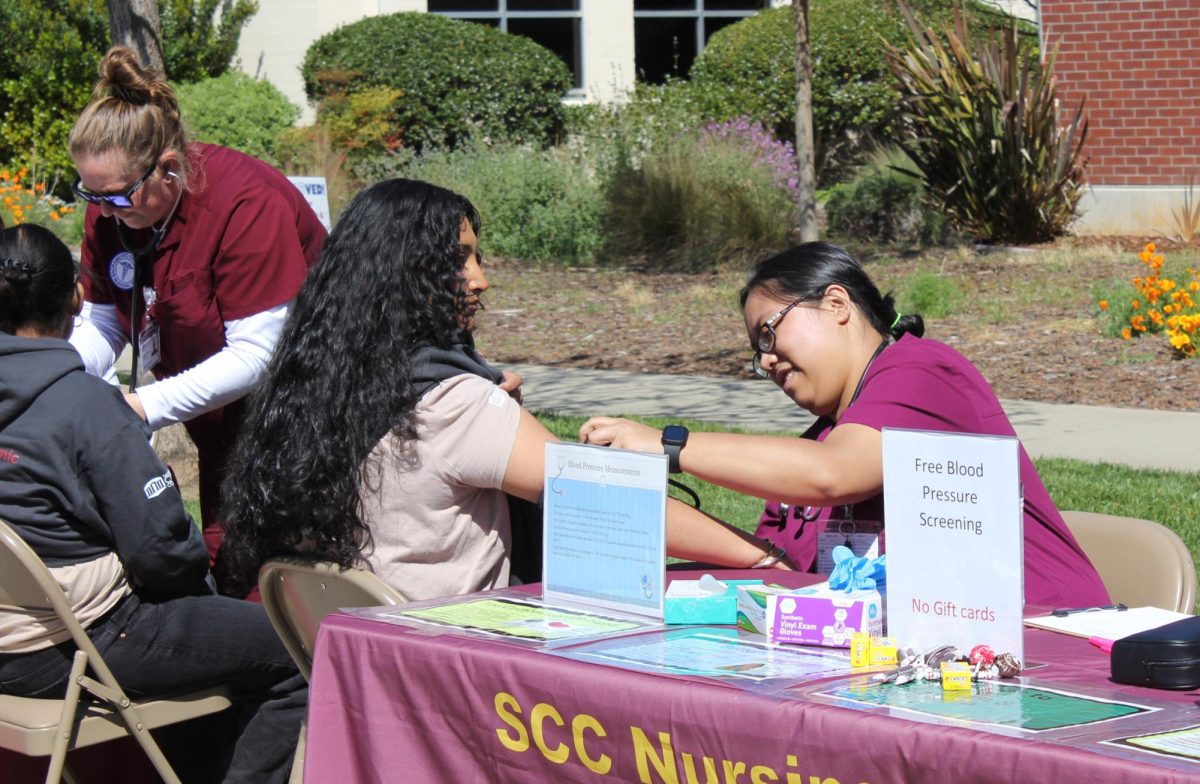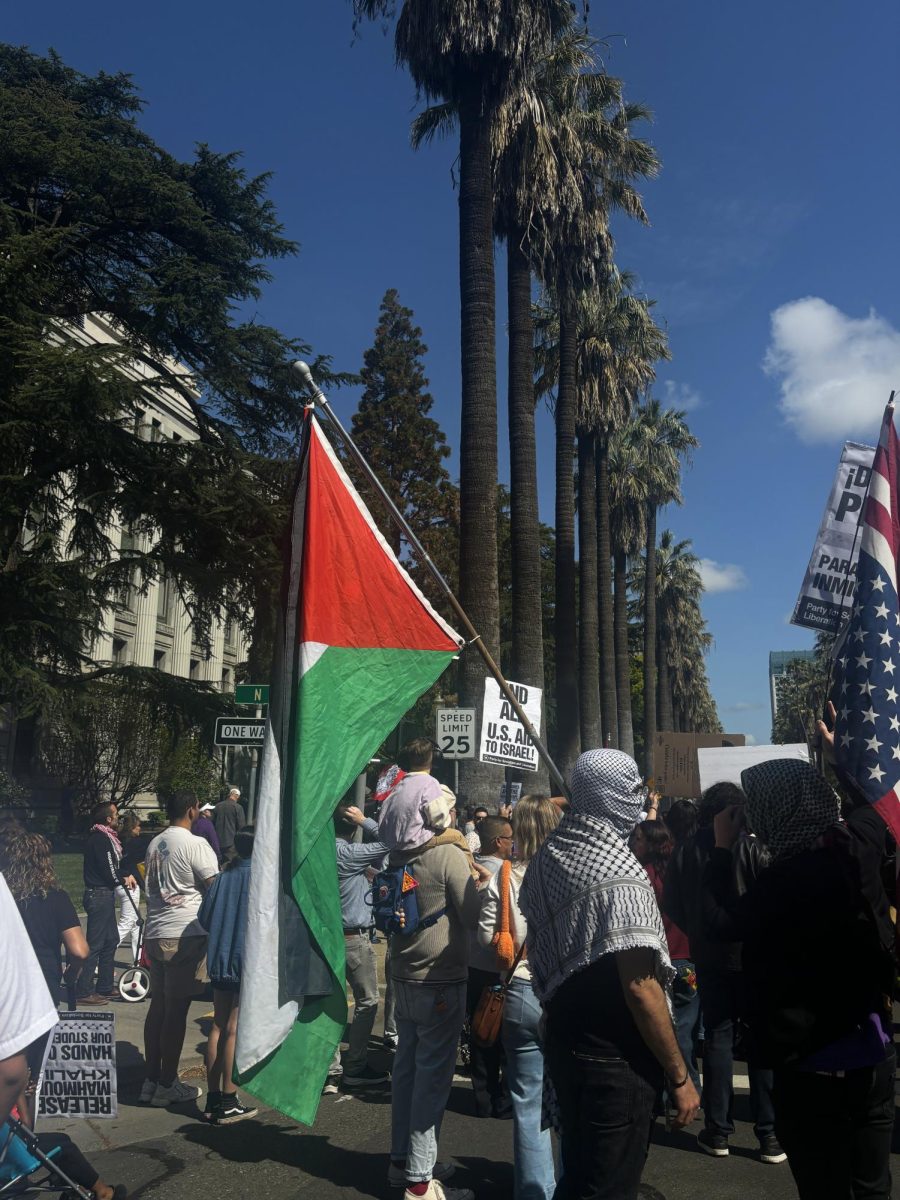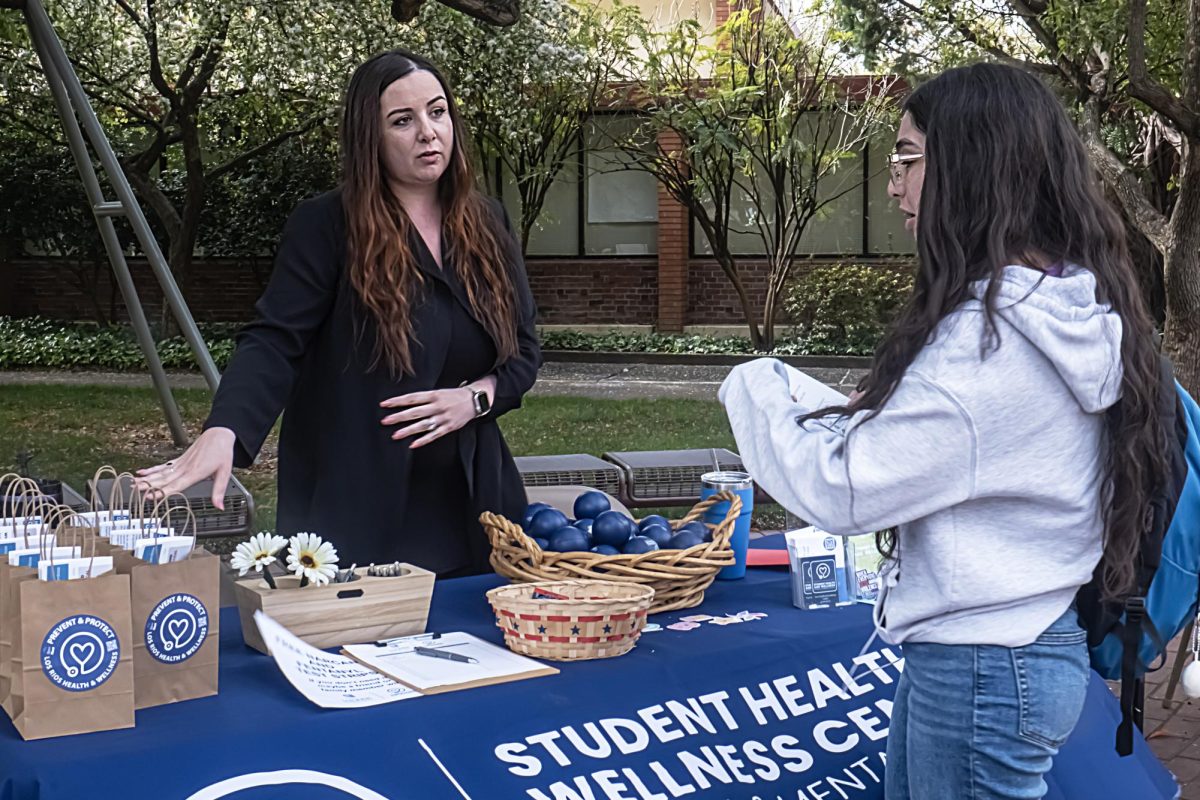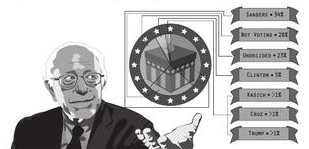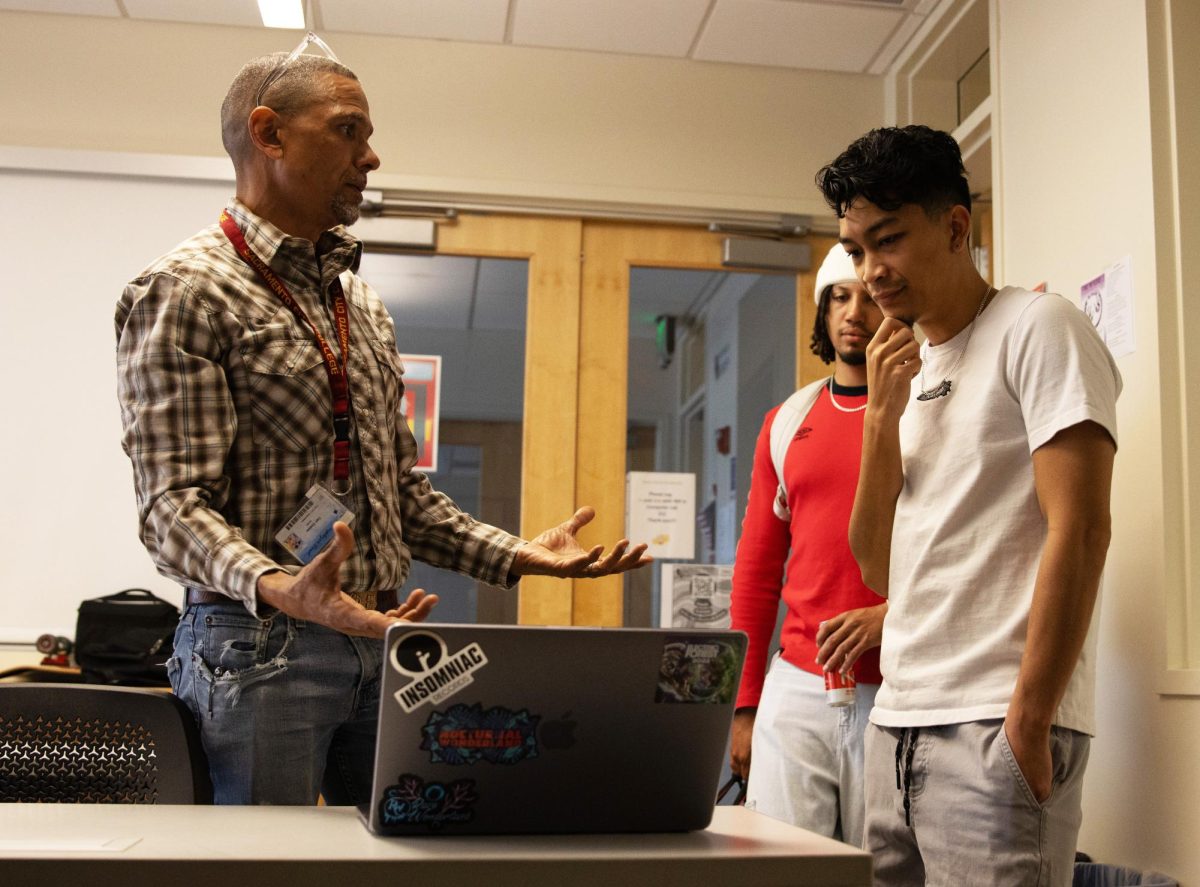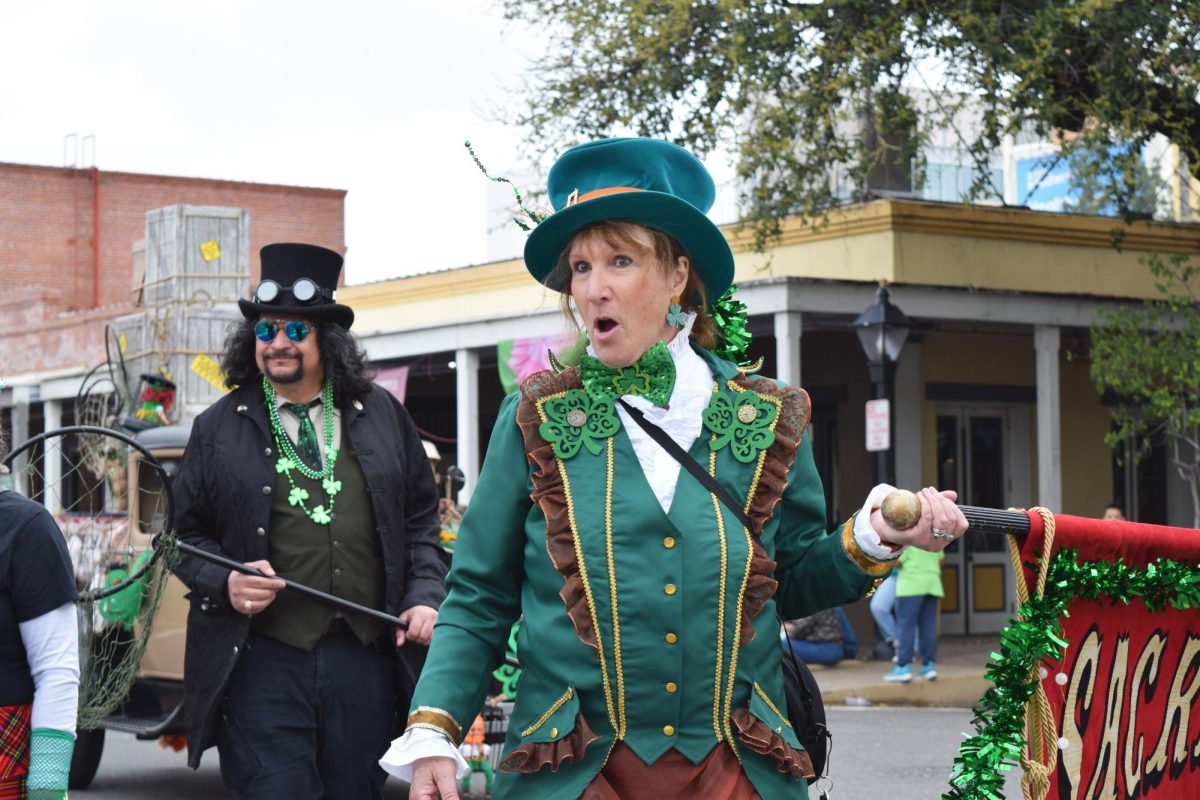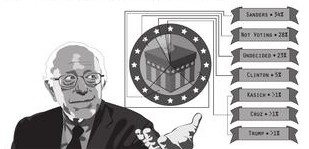
Sen. Bernie Sanders was the most popular presidential candidate in a small poll of City College students, receiving support from 34 percent of those polled, while 28 percent said they were not planning on voting and 23 percent were undecided.
The Express asked 128 City College students whom they were planning to vote for in the United States presidential election. The California primary is June 7.
Bernie Sanders, the Vermont senator running for the Democratic presidential nomination, received support from a total of 44 students who said that he was their first choice for president.
Some students felt that Sanders was the only acceptable candidate, including psychology and biology major Riz Koross, who said that Hillary Clinton was not an option for him.
“She is the candidate of Wall Street,” Koross said. “I’m worried that if she’s elected, she’s going to crack down on civil liberties.”
Michael Eke, a nursing major who is in the process of becoming a citizen, also expressed support for Sanders.
“A lot more people are going to benefit from [Sanders],” Eke said. “If the right structures are in place, this country can be great. Of what use is power if a large number of kids are out of school?” Eke said that he thinks Sanders will help many groups that have been neglected by the government.
Dr. Paul Frank, political science professor and head of the campus honors program, hopes that the sense of political involvement encouraged by Sanders will continue.
“When you have a candidate like Bernie Sanders or like Barack Obama, young people often get excited,” said Frank. “But that excitement doesn’t always continue.”
Thirty-six students made up the next largest group of responses: those who do not plan to vote in the election.
Hannah Gibson, a child development major, said that she won’t vote because she feels that her vote won’t matter.
“I’ve always been a voter [but not anymore],” Gibson said. “I feel like everything that was promised, a lot of it hasn’t come true.”
Many other students also feel that their vote doesn’t matter, or that there’s no reason to vote. Frank expressed his opposition to that philosophy.
“There’s a lot of other things besides just candidates to vote for,” Frank said. “There’s a lot of big issues that are going to be on the ballot, and if you don’t vote because you don’t like the candidates, then you’re leaving a lot of power on the table.”
According to Frank, it is not surprising that there are so many non-voters. Looking at campus demographics, he pointed out that the student population is made up largely of groups that are historically less likely to cast ballots: young people, poor people and people of color.
“They’ve got school, jobs, families,” said Frank. “Things are kind of stacked against our students.”
Undecided voters made up the next largest percentage of the poll at 23 percent.
Michael Hunsaker, a social science major, didn’t think that there was a good candidate for him but was still planning to vote.
“I’m not happy with hardly any of them,” said Hunsaker. “Cruz is way too far to the right for me, Sanders is way too far to the left.”
Many students said they weren’t sure whether they would vote, or who they would vote for. Others still were very passionate about their ideal president.
The next most popular candidate received 5 percent of the total votes — the current Democratic frontrunner and former secretary of state Hillary Clinton. One Clinton supporter, who asked to remain anonymous, said that Clinton’s candidacy meant a lot for women everywhere.
“This is the time of women, time to make their words stand for something. She’s going to be the one to do that.”
Ted Cruz, John Kasich and Donald Trump each received one vote in the informal poll, tied with business major Larry Zachary, who said he plans to write in his own name on the ballot in November.















